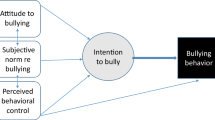Conclusion
The St. Peter's College application of the Shinkfield model has proved itself to be a most attractive, successful approach for the evaluation of teachers. Provided that the teacher is being evaluated only with the expectation of positive outcomes in mind, improvement as a professional practitioner of teaching most likely will occur.
The approach also has shown that the teacher-appraisal function can be a facilitating and enhancing process, characterized by openness of approach, mutual respect between teacher and principal and heightened awareness of the importance to teaching of mastery of particular skills and competencies. Any successful climate of process such as the one described here must strengthen the school itself and, more particularly, student learning.
Similar content being viewed by others
References
Redfern, G. (1980).Evaluating Teachers and Administrators: A Performance Objectives Approach. Boulder, CO: Westview Press.
Scriven, M.S. (1994). Duties of the Teacher.Journal of Personnel Evaluation in Education, Vol. 8(2). Boston: Kluwer Academic Publishers.
Author information
Authors and Affiliations
Additional information
A South Australian with extensive experience in educational evaluation, Anthony Shinkfield is a member of CREATE's National Advisory Panel.
Rights and permissions
About this article
Cite this article
Shinkfield, A.J. Principal and peer evaluation of teachers for professional development. J Pers Eval Educ 8, 251–266 (1994). https://doi.org/10.1007/BF00973724
Issue Date:
DOI: https://doi.org/10.1007/BF00973724




